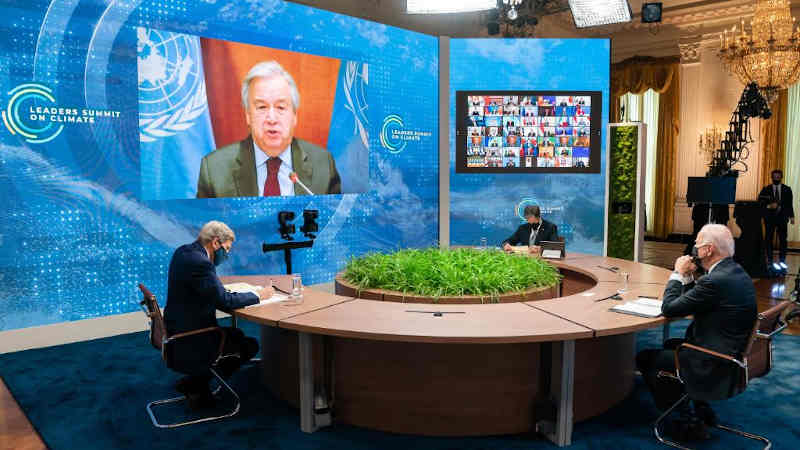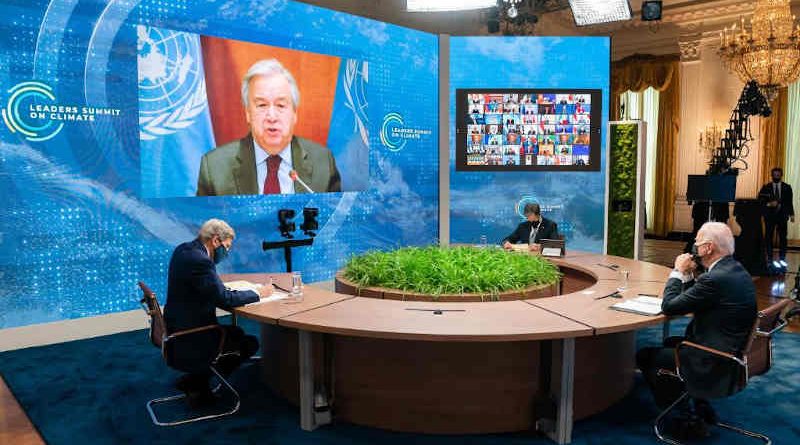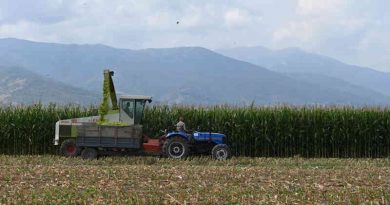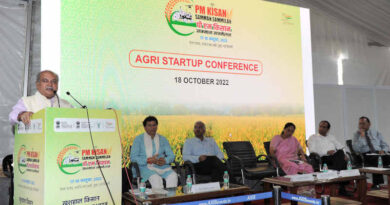U.S. and Global Partners Launch Agriculture Innovation Mission for Climate

AIM for Climate partners are mobilizing this investment to close the global investment gap in climate-smart agriculture and food systems innovation.
On November 2, at the 26th United Nations Climate Change Conference (COP26), the United States and United Arab Emirates officially launched the Agriculture Innovation Mission for Climate (AIM for Climate) alongside 31 countries and over 48 non-government partners.
In remarks at the World Leaders Summit, President Biden announced that the United States intends to mobilize $1 billion in investment in climate-smart agriculture and food systems innovation over five years (2021-2025).
Previewed at President Biden’s Leaders Summit on Climate in April, AIM for Climate is a pioneering initiative uniquely focused on increasing investment and enabling greater public-private and cross-sectoral partnerships, intended to both raise global climate ambition, and underpin transformative climate action in the agriculture sector in all countries. AIM for Climate has already begun to bear fruit, garnering an “early harvest” of $4 billion in increased investment in climate-smart agriculture and food systems innovation over five years.
AIM for Climate partners are mobilizing this investment to close the global investment gap in climate-smart agriculture and food systems innovation. Climate-smart agriculture is an approach that helps to guide actions needed to transform and reorient agricultural systems to tackle three main objectives: sustainably increasing agricultural productivity and incomes, while adapting and building resilience to climate change and/or reducing/removing greenhouse gas emissions. AIM for Climate seeks to create incentives for, and mechanisms for maximizing the impact of, new investments toward an agriculture sector that is ready to face a changing climate.
Government partners are providing the crucial foundation of AIM for Climate, through a wave of public investment in climate-smart agriculture and food systems innovation. Other sectors, including business, philanthropy, and other non-government partners are invited to build upon that foundation with “innovation sprints” – investments in specific, impactful, measurable, expedited efforts – or by providing critical knowledge for identifying investment gaps, challenges, and opportunities.
AIM for Climate has three primary objectives:
Demonstrate collective commitment to significantly increase investment in agricultural innovation for climate-smart agriculture and food systems over five years (2021-2025);
Support frameworks and structures to enable technical discussions and the promotion of expertise, knowledge, and priorities across international and national levels of innovation to amplify the impact of participants’ investments; and,
Establish appropriate structures for exchanges between Ministers, chief scientists, and other stakeholders as key focal points and champions for cooperation on climate-related agricultural innovation, to engender greater co-creation and cooperation on shared research priorities.
AIM for Climate focuses on increasing and accelerating investment in, and other support for, climate-smart agricultural innovation in the areas of:
Scientific breakthroughs via basic agricultural research through national-level government and academic research institutions;
Public and private applied research, including through support to international research centers, institutions, and laboratory networks; and
Development, demonstration, and deployment of practical, actionable, and innovative products, services, and knowledge to producers and other market participants, including through national agricultural research extension systems.
AIM for Climate government partners announced at COP26 include Azerbaijan, Australia, Bahamas, Bangladesh, Brazil, Burkina Faso, Canada, Colombia, Denmark, Finland, Georgia, Ghana, Honduras, Hungary, Ireland, Japan, Kenya, Republic of Korea, Israel, Lithuania, Mexico, Morocco, New Zealand, Philippines, Romania, Singapore, Sweden, United States, United Arab Emirates, United Kingdom, Uruguay, Ukraine, and Vietnam.




